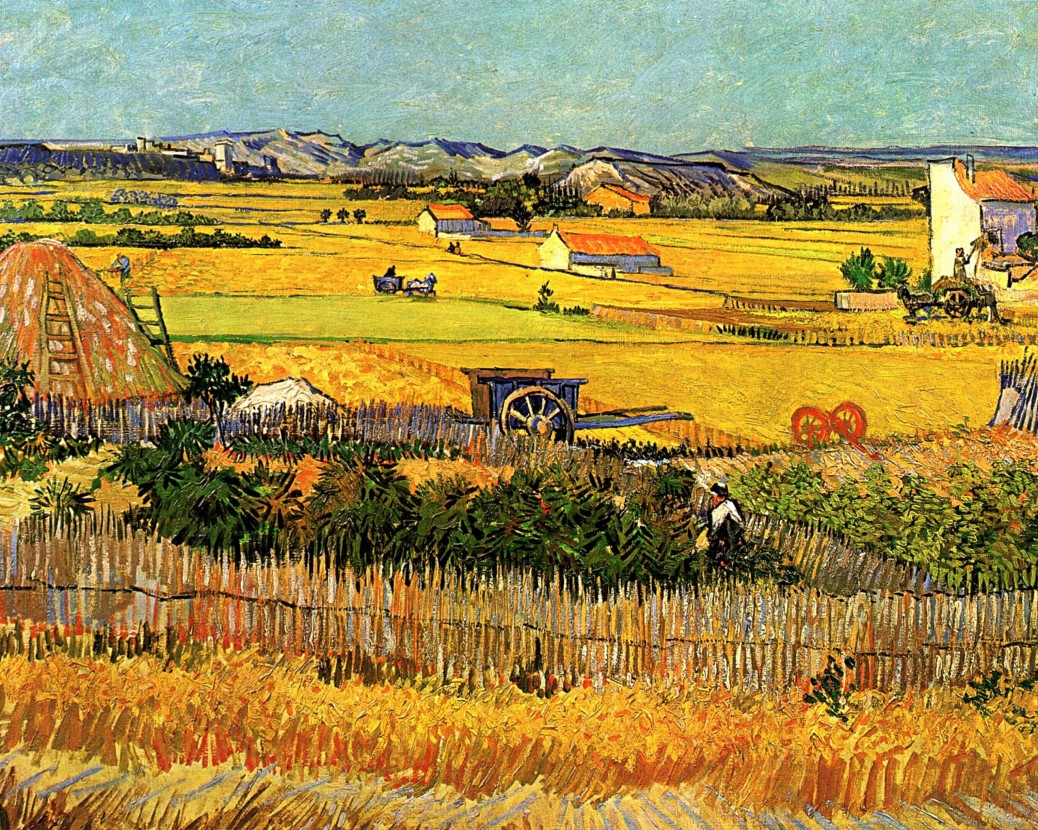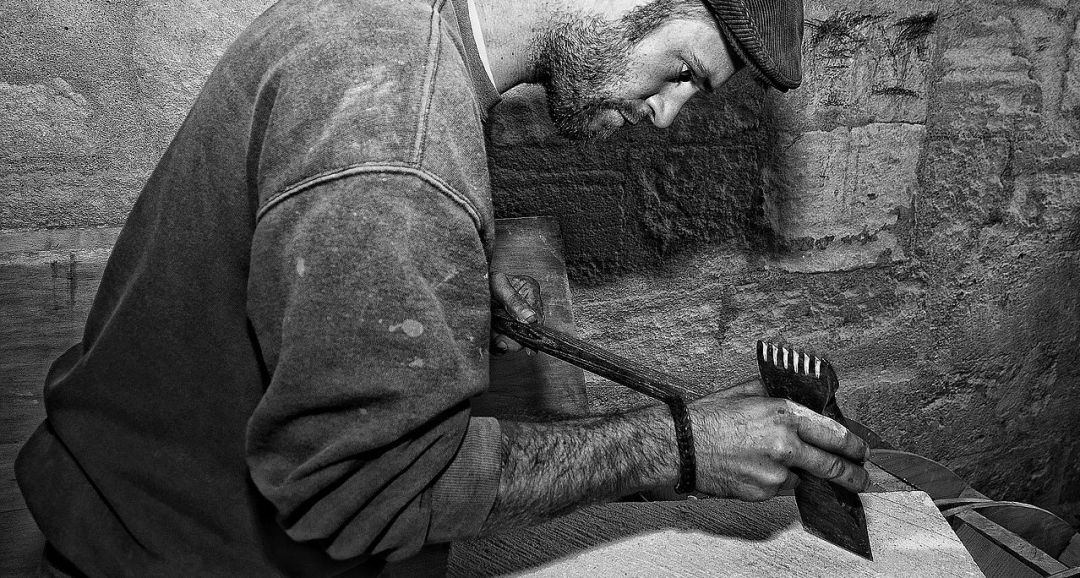Before we enter Yoga Sutra 18 let’s understand why we have an endless chain of miseries.
LIFE SEEMS to be an endless chain of miseries. From birth to death one suffers and suffers; still one wants to live. One continues to cling to life.
Albert Camus has said somewhere, and very rightly, ‘The only metaphysical problem is suicide.’ Why don’t you commit suicide? If life is such a misery, such a hopeless affair, why don’t you commit suicide? Why be at all? Why not not be?
Deep down, this is the real philosophical problem. But nobody wants to die.
Even people who commit suicide, commit suicide in hope that by committing suicide they will get to a better life, but clinging to life remains. Even with death, they are hoping.
I have heard about one Greek philosopher who taught his disciples nothing else but suicide. Of course, nobody ever followed him. People listened; he was a very articulate man. Even while listening to him about suicide – it looked beautiful, worth listening to – nobody followed him. He himself lived to the very ripe age of ninety. He himself didn’t commit suicide. While on his death-bed, somebody asked, ‘You taught continuously about suicide. Why have you yourself not committed it?’ The old, dying philosopher opened his eyes and said, ‘I had to be here just to teach people.’
Clinging to life is very deep. Patanjali calls it abhinivesh, lust for life. Why is it there if there is so much misery? People come to me, and with deep anguish they talk about their miseries, but they don’t seem to be ready to leave life. Even with all its miseries, life seems to be worthwhile. From where does this hope come? – It is a paradox and has to be understood.
In fact, you cling to life more if you are miserable. The more miserable you are, the more you cling. A man who is happy does not cling to life. This will look paradoxical on the outer surface, but if you penetrate deeply, you will understand what is the matter. People who are suffering are always hopeful, optimistic. They always hope that something is going to happen tomorrow.
People who have lived in deep misery and hell have created heaven, the idea, the paradise. It is always tomorrow; it never comes. It is always there, hanging like a bait in front of you somewhere in the future.
It is a trick of the mind: heaven – the greatest trick of the mind. The mind is saying, ‘Don’t be worried about today, tomorrow is paradise. Just somehow pass through today. It is nothing compared to the happiness that is waiting for you tomorrow!’ And tomorrow seems to be so near. Of course it never comes, it cannot come. Tomorrow is a non existential thing. Whatsoever comes is always today, and today is hell. But the mind consoles; it has to console, otherwise it will be almost impossible to bear – the misery is intolerable. One has to tolerate it.
How can you tolerate it? The only way is hope, hope against all hopes, dream.
The dream becomes a consolation. The dream dilutes your miseries today. The dream may not come, that is not the point, but at least today you can dream and tolerate the misery that is there. You can postpone. Your desires can go on hanging there in the future, unfulfilled. But the very hope that tomorrow will be coming and everything will be okay helps you to pull along, to persist.
The more miserable a man, the more hopeful; the more happy a man, the more hopeless. That is why beggars never renounce the world. How can they renounce? Only a Buddha, a Mahavir – born in palaces as princes – renounce the world. They are hopeless; they have nothing to hope for. Everything is there and still there is misery. A beggar can hope because nothing is with him: when everything is there, there will be heaven and paradise and everything will be a happiness. He has to wait and make arrangements for tomorrow to happen.
There is nothing left for a Buddha. Everything is available; all that is possible is already there. Then how to hope? For what to hope?
That is why I insist again and again that only in an affluent society does religion become possible. A poor society cannot be religious. A poor society is bound to become communist, because communism is the hope of tomorrow, a heaven. ‘Tomorrow everything is going to be distributed equally, tomorrow there is going to be no rich man and no poor man, tomorrow is the revolution. The sun will rise and everything is going to be beautiful. The darkness is only today. You have just to tolerate it and fight for tomorrow.’ A poor society is bound to be communist.
Only does a rich society start feeling hopeless. And when you start feeling hopeless about life, the real hope becomes possible. When you feel so very frustrated with life that you are at the brink of committing suicide, you are ready to leave this whole misery. Only in that moment of crisis is transformation possible.
Suicide and sadhana are the two alternatives. When you are ready to commit suicide, you are ready to be transformed – never before it. When you are ready to leave your whole life and all its miseries, only then is there a possibility that you may be ready to transform yourself. Transformation is the real suicide. If you kill your body, that is not a real suicide. You will get another body again, because the mind remains old. To kill the mind is the real suicide, and that is what yoga is all about: killing the mind, attaining to the ultimate suicide. From there, then there is no coming back.
But man clings to life because man is miserable. You would have thought otherwise: that a miserable man should not cling to life. What is there that life has given to him? Why should he cling? Many times the idea must have come to you, seeing a beggar on the road, in the gutter, blind, suffering from leprosy, without feet, without hands; the idea must have passed through your mind, ‘Why is this man clinging to life? What is left there now? Why can’t he commit suicide and be finished?’ I remember: in my childhood a beggar with no legs used to come. He was carried in a small cart by the wife. He was blind, the whole body a stinking corpse. You couldn’t come near him. He was suffering from incurable leprosy – almost dead, ninety nine percent dead, only one percent alive but somehow breathing. I used to give him something. One day I asked him, just out of curiosity, ‘Why are you living – for what? Why can’t you commit suicide and be finished with such a miserable life?’ Of course, he became angry. He said, ‘What are you saying?’ He was angry. He wanted to hit me with his staff.
It might appear to you that a miserable man should commit suicide, or at least think about finishing it. But never – a miserable man never thinks about it, he cannot. Misery creates its compensation, misery creates its antidote. Heaven is the antidote – ‘Tomorrow, everything is going to be alright. It is only a question of a little more patience.’
A beggar always lives in the future. And you are a beggar if you live in the future. That is the criterion to judge whether a man is an emperor or a beggar: if you live in the future you are a beggar; if you live right here, now, you are an emperor.
A man who is blissful lives here and now. He doesn’t bother about the future.
The future means nothing; future has no meaning for him. Future in fact is non-existential; this moment is the only existence. But that is possible only for a blissful man. For a miserable man, how can this moment be the only existence?
Then it will be too much – unbearable, impossible. He has to create the future.
He has to create a dream somewhere, somehow, to compensate for the misery.
The deeper the misery, the more the hope. Hope is a compensation. A miserable man never commits suicide, and a miser able man never comes to religion. A miserable man clings to life. The more happy you are, the more you will be ready to give up life at any moment – any moment, with no clinging. You can put your life out just like worn out clothes; it doesn’t matter at all.
Not only that; if you are really blissful and the death knocks at the door, you will welcome it. You will embrace death, and therein you will transcend death. Let me repeat: death comes and knocks at your door, and if you are afraid and you hide somewhere in the corners, in the cupboards, and you cry and you want to live a little more, you are a victim. You will have to die many times. A coward dies a thousand and one times. But if you can open the door, welcome death as a friend, embrace death, therein you have transcended death. Now you are deathless. For the first time, now you attain to a life which is not misery, the life of which Jesus talks: life in abundance; the life of which Buddha talks: the life of ecstasy, of nirvana; the life about which Patanjali is talking: eternal, beyond time and space, beyond death.
Misery creates its own compensation. Once you are caught in the trap, the more you will cling to life, and the more you will become miserable. That is the second part: the more you cling to life, the more you will be miserable because clinging itself creates misery, clinging creates more frustrations. When you don’t cling to something, if it is lost you are not miserable. When you cling to a thing and it is lost, you go mad. The more you cling to life, the more and more you will find every day that you are becoming miserable. Anguish is being added to your being more and more. A moment comes when you are nothing but an anguish, a screaming anguish. And when this happens, you cling more. This is a vicious circle.
Just observe the whole phenomenon. Why are you clinging? You are clinging because you have not yet been able to live. The very clinging to life shows that you have not yet been alive, you have lived a dead life, you have not yet been able to enjoy the blessings of life, you have been insensitive, you have lived a closed life. You have not been able to touch the flowers, the sky, the birds. You have not been able to flow with the river of life; you are frozen. Because you are frozen and you cannot live, you are miserable. Because you are miserable you are afraid of death because if death comes right now and you have not lived life yet, you are finished.
There is an old story. In the days of the Upanishads there was a great king, Yayati. His death came. He was a hundred years old. When death came he started crying and weeping. Death said, ‘This doesn’t suit you, a great emperor, a brave man. What are you doing? Why are you crying and weeping like a child? Why are you trembling like a leaf in a strong wind? What has happened to you?’ Yayati said, ‘You have come and I have not yet been able to live. Please give me a little more time so that I can live. I did many things, I fought in many wars. I accumulated much wealth, I have made a great kingdom. I have added much to my father’s wealth but I have not lived. In fact, there was no time to live, and you came. No, this is unjust. You give me a little more time!’ Death said, ‘But I have to take somebody. Okay, make an arrangement. If one of your sons is ready to die for you, I will take him.’
Yayati had one hundred sons, thousands of wives. He asked, he called his sons.
The older ones wouldn’t listen. They had themselves become cunning and they were in the same trap. One, the eldest, was seventy. He said, ‘But I have also not lived. What about me? At least you have lived a hundred years, I have lived only seventy. I should be given a little more of a chance.’ The youngest, who was just sixteen or seventeen, came, touched his father’s feet, and said, ‘I am ready.’ Even death felt compassion for this boy. Death knew that he was innocent, not versed in the ways of the world, did not know what he was doing. Death whispered in the ear of the boy, ‘What are you doing? You fool! Look at your father. At the age of a hundred he is not ready to die, and you are just seventeen! You have not even touched life.’ The boy said, ‘Life is finished! Because my father at the age of a hundred still feels that he has not been able to live, so what is the point? Even if I live a hundred years, it is going to be the same. It is better to let him live my life. If he cannot live in a hundred years, then the whole thing is pointless.’
The son died and the father lived a hundred years more. Again death knocked and again he started crying and weeping. He said, ‘I completely forgot. I was again increasing wealth, expanding the kingdom, and the hundred years have gone as if in a dream. You are again here and I have not lived.’ And this continued.
The death came again and again and he would take one of the sons. Yayati lived for one thousand years more.
A beautiful story, but the same happened again. One thousand years passed and death came. Yayati was trembling and weeping and crying. Death said, ‘But now it is too much. You have lived one thousand years and you again say that you have not been able to live.’ Yayati said, ‘How can one live in the here and now? I always postpone: tomorrow and tomorrow. And tomorrow? – suddenly you are there.’
Postponing life is the only sin that I can call sin. Don’t postpone. If you want to live, live here and now. Forget the past, forget the future; this is the only moment, this is the only existential moment – live it. Once lost it cannot be recovered, you cannot reclaim it. – If you start living in the present, you will not think of the future and you will not cling to life. When you live, you have known life, you are satisfied, satiated. Your whole being feels blessed. There is no need for any compensation. There is no need for death to come after a hundred years and see you trembling and weeping and crying. If death comes right now you will be ready: you have lived, you have enjoyed, you have celebrated. A single moment of really being alive is enough, and one thousand years of an unreal life are not enough. One thousand or one million years of an unlived life are not worth while; and I tell you, a single moment of lived experience is an eternity unto self. It is beyond time; you touch the very soul of life. And then there is no death, no worry, no clinging. You can leave life any moment and you know that nothing is left. You have enjoyed it to the very full, to the very brink. You are overflowing with it, you are ready.
A man who is ready to die in a deep celebrating mood is the man who has really lived. Clinging to life shows that you have not been able to live. Embracing death as part of life shows that you have lived well. You are content. Now listen to Patanjali’s sutra. It is one of the most profound, and very, very significant for you.
Tags: Lust For Life Patanjali










